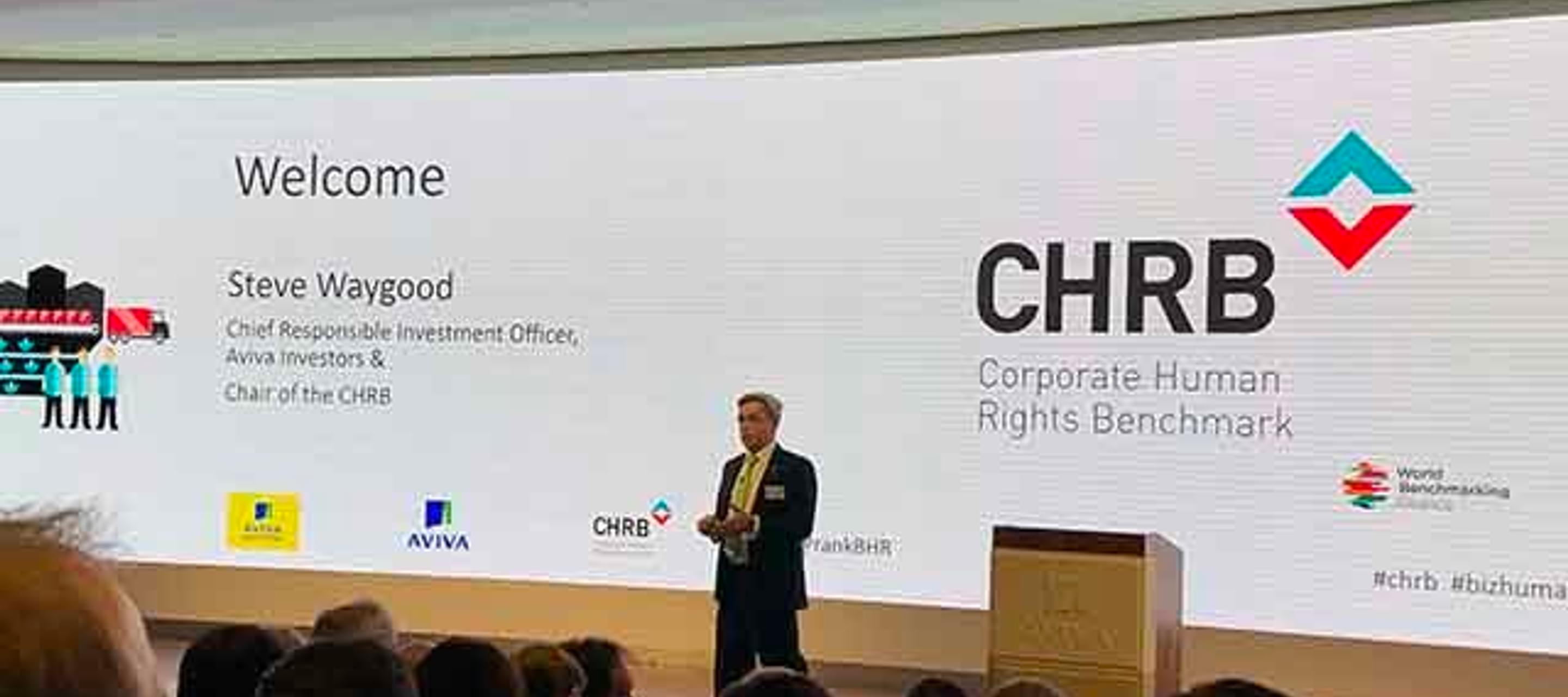2018 Corporate Human Rights Benchmark
13 November 2018

The 2018 Corporate Human Rights Benchmark (CHRB) assesses the performance of 101 of the largest publicly traded companies in the world on a set of human rights indicators. The companies, from three industries - agricultural products, apparel, and extractives - were chosen on the basis of their market capitalisation and revenues. Companies were assessed across six measurement themes each with varying weightings, using similar methodology to the CHRB's 2017 results.
Performance across the companies measured was generally disappointing, with a clear division between those companies continuing to make an effort and those persistently not engaging (or at least not reporting if they are). The average company score is alarmingly low at 27%. Less than 10% of the companies assessed commit to respecting rights of human rights defenders and activists. Virtually none commit to ensuring workers are paid a living wage. Overall companies tend to perform more strongly on policy commitments and management systems than on remedy or dealing with key risks in practice.
In his opening speech, John Morrison said: "The good news is that some of the companies assessed have made real progress in disclosing their human rights performance... The less good news is that there are companies ... which have stubbornly remained unengaged."
Phil Bloomer, member of the CHRB Advisory Panel, said in the report: "The majority of companies appear to be only dimly aware of the potential threats and prizes around them, having made small or no progress in putting human rights at the heart of their business."
Steve Waygood, Chief Responsible Investment Officer at Aviva Investors and Chair of CHRB, said "Better scoring companies are a minority, but they do exist. They demonstrate that integrating respect for human rights is neither impossible, nor detrimental, to the business model... The top five scoring companies are the same as in 2017; Adidas, BHP Billiton, Marks and Spencer, Rio Tinto and Unilever, but they are leaving the ‘average’ company further behind.”
For more information on the 2018 results, see the full report on the CHRB website.



